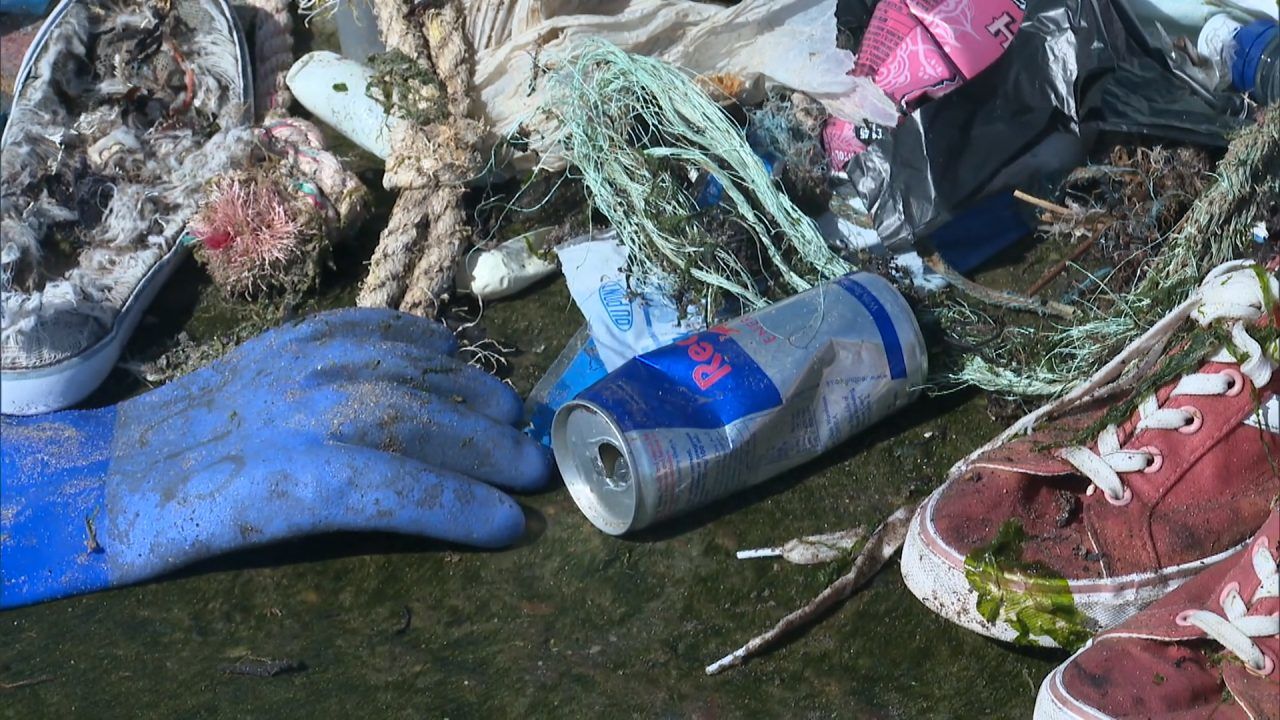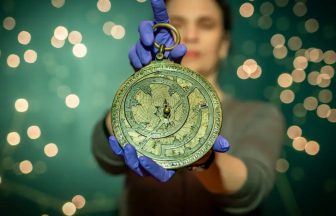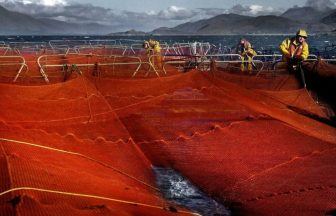Beach litter has risen by more than 40% this year, according the Marine Conservation Society.
Eight miles of Scottish beach was surveyed and cleared by more than 1,200 volunteers, who filled more than 400 bags of litter.
The annual Great British Beach Clean collects data to help the charity lobby governments for cleaner seas.
It found beach litter had increased by 42% in Scotland, with a sharp rise in the amount of sewage-related debris washing ashore.
More than 7,000 wet wipes were recorded, mostly on beaches in the central belt, resulting in an increase of 150% from 2021.
This means that an average of 63 wet wipes were recorded for every 100m of Scottish beach surveyed.
Many of these wet wipes will have found their way onto beaches via overflowing sewage pipes, known as combined sewage overflows.
Since 2015, wet wipes have been an increasing trend in Scotland, with annual fluctuations.
Comparing 2015 to 2021, wet wipes have increased almost four-fold (372%).
Catherine Gemmell, Scotland conservation officer, said: “No one wants to go to a beach and find themselves surrounded by washed-up wet wipes.
“We have been talking about this for far too long, and our beaches and wildlife are suffering as a result.”
Scottish Water urged people to stop flushing wet wipes down toilets.
A spokesperson said: “The latest Marine Conservation Charity figures are disappointing and underline the importance of binning wet wipes and never flushing them down toilets.
“Since we launched our Nature Calls campaign in February, there have been some early signs of improvement – with the number of chokes and blockages in our pipes down 13% compared with this time last year.
“We all need to work together to protect our seas and rivers by reducing our use of single-use plastic products like wipes, which choke sewers and harm the environment, and always disposing of them appropriately.
“Scottish Water is committed to playing our part in protecting and improving Scotland’s rivers, coastal waters and beaches and we plan to invest up to half a billion pounds in Scotland’s waste water network in the years ahead to deliver further improvements.”
Most common items found
Per 100m of beach
- Plastic and polystyrene pieces – 167.5
- Wet wipes – 63.3
- Crisp and sweet packets, lollipop sticks – 38.3
- Cotton bud sticks – 18.9
- Plastic lids and caps – 16.6
- String or cord – 15.3
- Glass items – 12.4
- Other plastic or polystyrene items – 10.4
- String or cord 1cm+ – 10
- Cloth fragments – 7.5
Follow STV News on WhatsApp
Scan the QR code on your mobile device for all the latest news from around the country




























